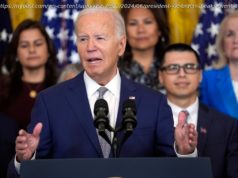The U.S. entered the coronavirus recession with a few structural advantages. Its success may not last for long.
© Getty / Shutterstock / The Atlantic Here is a remarkable, underappreciated fact: The U.S. economy has performed far better than that of many of the country’s peers during this horrible year. The International Monetary Fund expects the U.S. economy to contract by 4.4 percent in 2020, versus 5.3 percent in Japan,6 percent in Germany,7.1 percent in Canada, and nearly 10 percent in both the United Kingdom and France. Popular Searches APPLE INC. AAPL ▲ 116.59 +0.56 +0.48% CONSTELLATION BRANDS, INC. STZ ▲ 204.81 +0.11 +0.05% TESLA, INC. TSLA ▲ 585.76 +11.76 +2.05% AMAZON. COM, INC. AMZN ▲ 3,195.34 +10.27 +0.32% This fact is not a result of the United States managing its public-health response better than those countries, allowing it to reopen from lockdown sooner and for consumption to roar back. Indeed, many of those peer nations have had significantly better outcomes, as measured by COVID-19 caseloads, hospitalizations, and death rates. Nor is it a result of the U.S. preserving more jobs. The unemployment rate here is far higher here than it is in Japan, Germany, or the U.K. America owes its macroeconomic good fortune to Washington muscling through a giant and successful stimulus in the spring—a policy victory that Congress and the outgoing Trump administration are doing their best to cram into the jaws of defeat. [Annie Lowrey: Why the Trump administration doesn’t want to help] The United States came into the coronavirus recession with a few structural advantages, including a highly diversified economy. Countries dependent on a single hard-hit industry—Spain on tourism, for instance—have tended to falter regardless of their health or macroeconomic response. The U.S. is also lucky not to have to rely on exports for growth. World Bank data show that sales abroad account for 12 percent of our gross domestic product, compared with 18 percent in Japan,32 percent in Canada, and 47 percent in Germany. This means that the collapse in global trade during the pandemic has hit other countries far harder than the U.S. Another structural advantage is that Washington prints the world’s reserve currency, which means that it tends to suck in global capital flows when uncertainty is high, “as in a pandemic,” Mark Zandi of Moody’s Analytics told me. That pushes up American asset values and lowers American borrowing costs. The U.S. labor market is also more flexible than those in other countries, Zandi noted. “Americans are more willing to adopt new technologies, to move for a job, and [to] make big changes in how they live and work.” That makes absorbing big, strange shocks easier. The United States has been better not just in form but also in function, with regard to combatting the economic fallout of the pandemic. It has had best-of-class monetary policy: This spring, the Federal Reserve, the country’s most capable technocratic institution, calmed the financial markets with an alphabet soup of special programs while dropping interest rates to zero and flooding the markets with cash.






